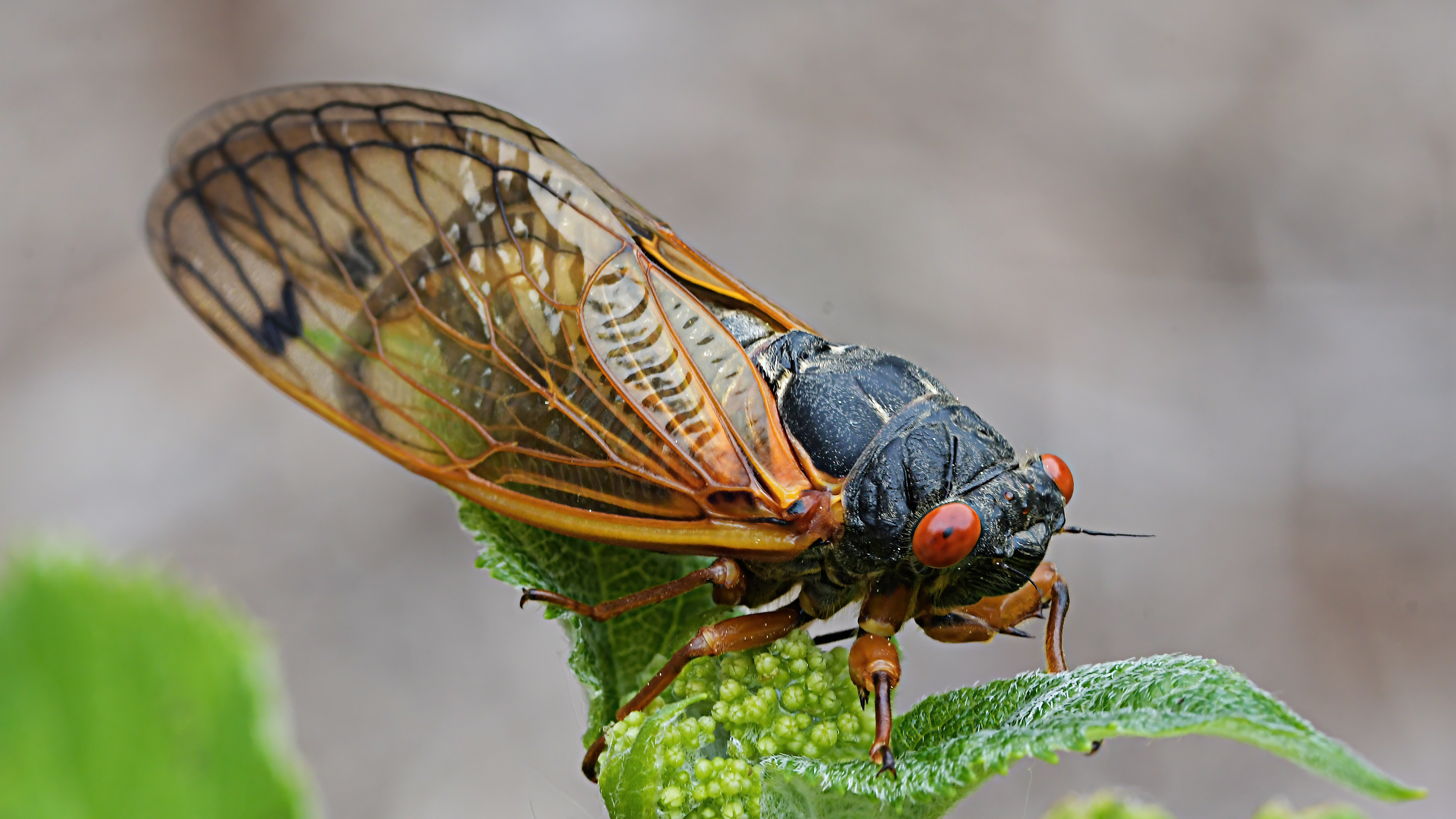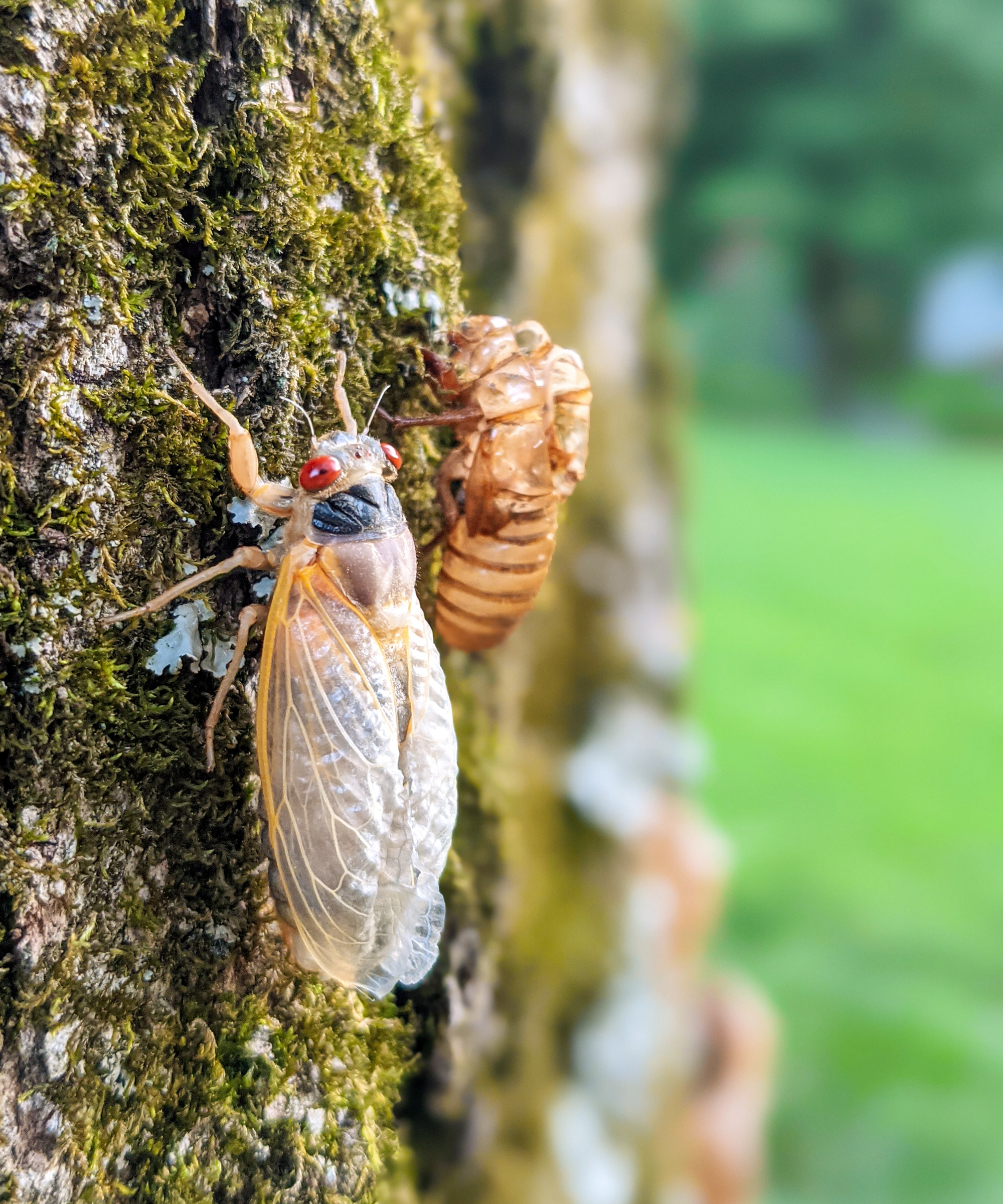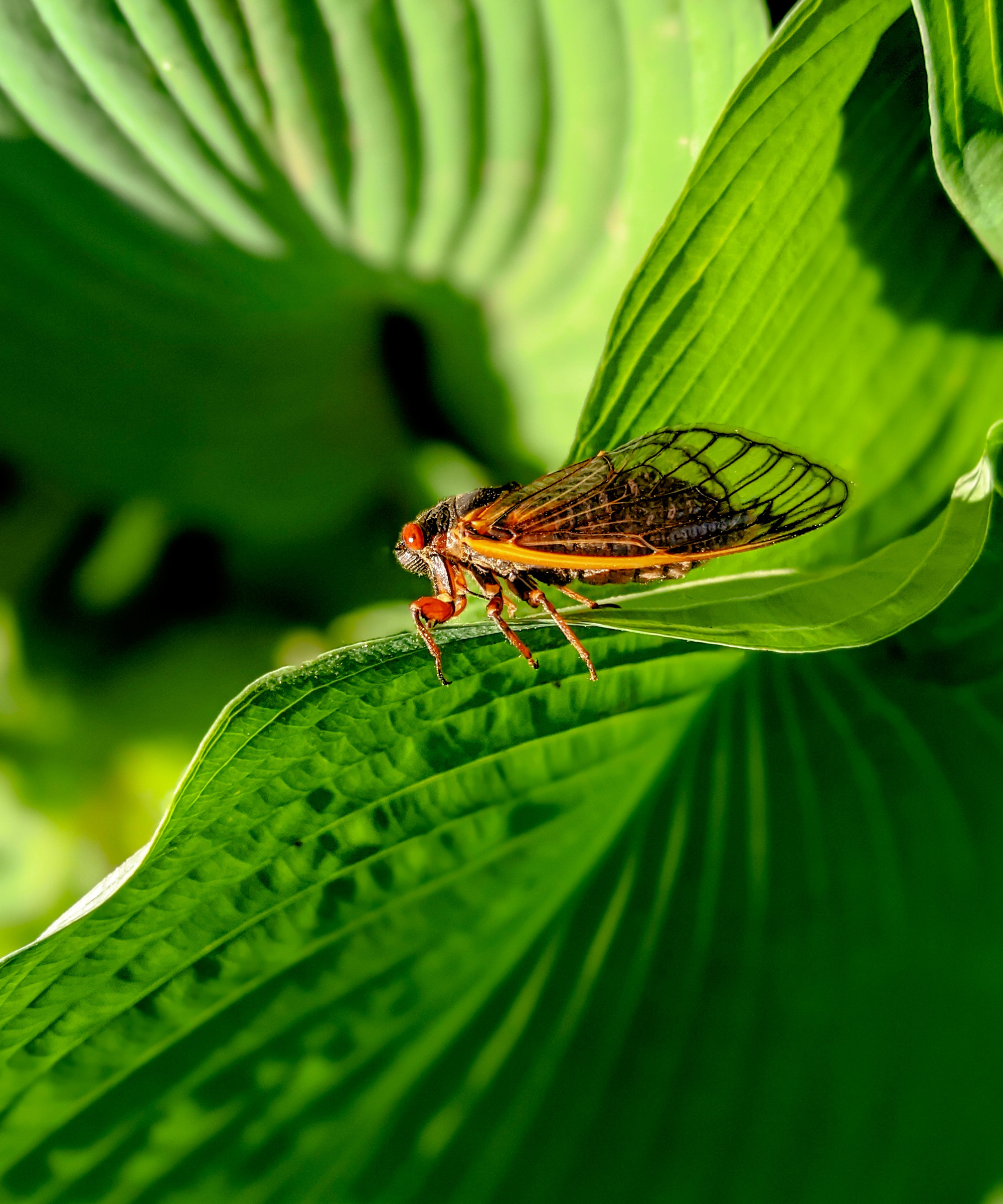The cicadas are coming – here's what gardeners in affected areas need to know
The emergence of Brood X cicadas is about to sweep eastern US – here's what you need to do to protect your garden

If you live in Eastern United States, the cicadas are coming for your garden – but you've probably already heard about the rare event about to take place any day now. The emergence of Brood X cicadas happens about every 17 years and brings with its weeks of noise and feasting before as the cicadas mate, lay eggs, and finally die.
If you, understandably, are worried about your garden, here's what you need to know about the cicadas and what you need to do to protect your garden design ideas from annihilation.
1. The cicadas only like trees and shrubs

If your main worry is your lawn or the tender flowers in your garden borders, you can breathe a sigh of relief: the cicadas are not interested in either. They won't devour your grass or your tender annuals – it's trees and shrubs you should protect.
As Debbie Roos, Local Foods Coordinator from North Carolina, told the North Carolina State University, 'The cicadas prefer stems and branches about the diameter of a pencil to deposit their eggs; on mature trees only the branch tips are damaged and the trees recover but on young trees the damage can occur on the main trunk and on primary lateral branches, causing significant damage.'
So, if you have young saplings of any kind, or freshly planted blueberry canes, you'll want to cover those with a fine mesh. If you have mature trees in your garden, you don't need to worry as much as they'll likely recover from the onslaught. If you can avoid planting any young shrubs or trees in your garden, that's the best protection from the cicadas.
2. They are insecticide-resistant
Here's some bad news for gardeners who were hoping that there's an effective pesticide that can kill any cicadas that land on your trees – there isn't, and, according to a study, the cicadas are somehow even more attracted to plants sprayed with pesticides and inflict even more severe damage on them.
So, if you've thought about how to create an eco-friendly garden, this year there's even more of a reason to lay off the pesticide sprays.
3. They actually are good for your garden in the long run

And here's the bit of good news – at the end of the day, the critters are harmless to humans and actually are good for gardens and plants in the long run. There's some evidence that the holes they burrow in lawns as they emerge provide helpful aeration – that's your spring lawn care tips covered for this year. Also, the decomposing cicadas, once they've died, are an excellent nitrogen-rich fertilizer. One study has even found that oak trees grow better for up to four years after being attacked by cicadas.
So, if you live in one of the areas affected by Brood X, there's not much to do but to avoid planting anything new and enjoy the weird natural show that is their rare emergence.
Anna writes about interior design and gardening. Her work has appeared in Homes & Gardens, Livingetc, and many other publications. She is an experienced outdoor and indoor gardener and has a passion for growing roses and Japanese maples in her outside space.
